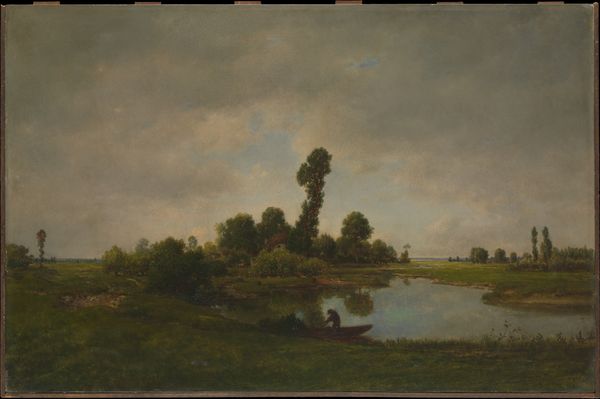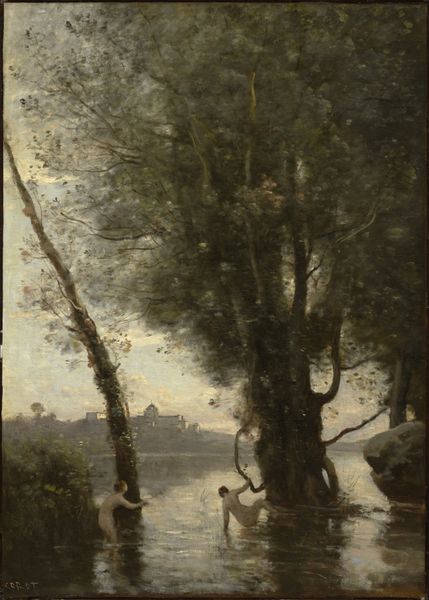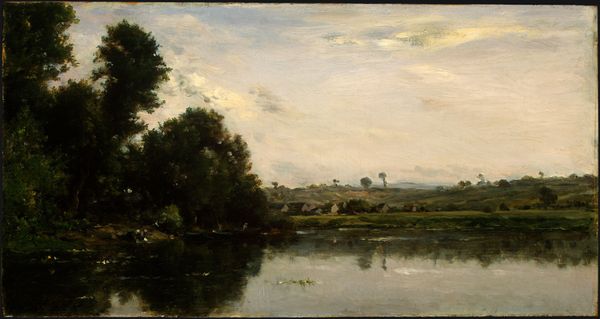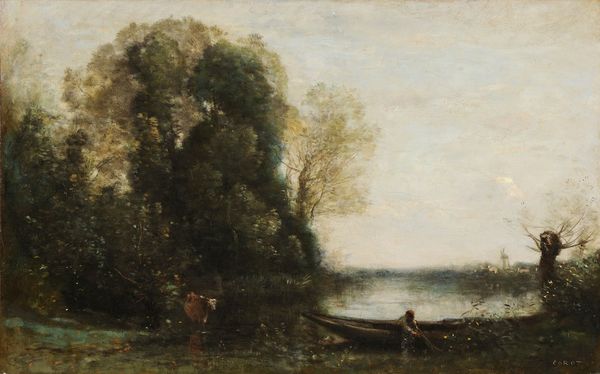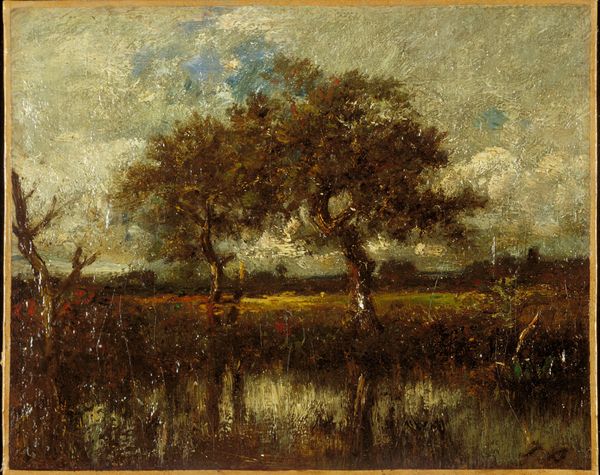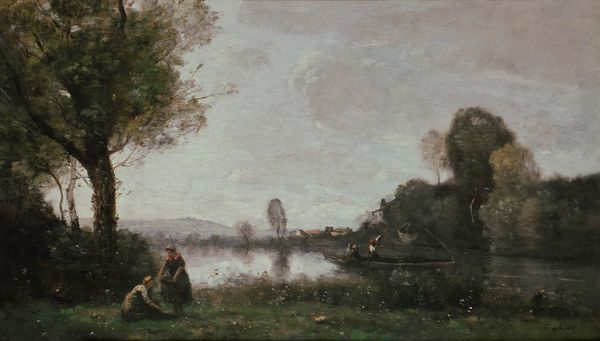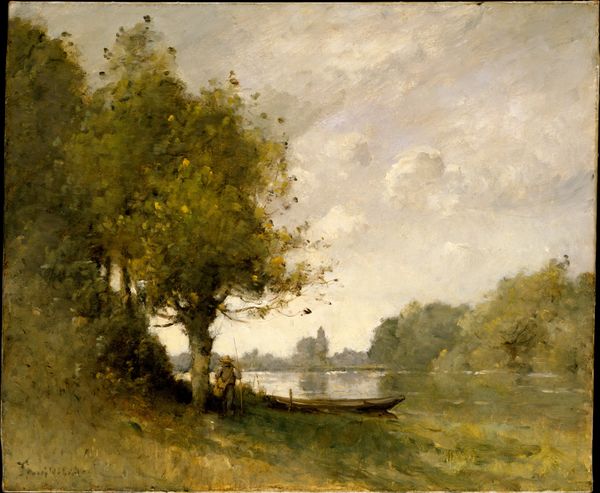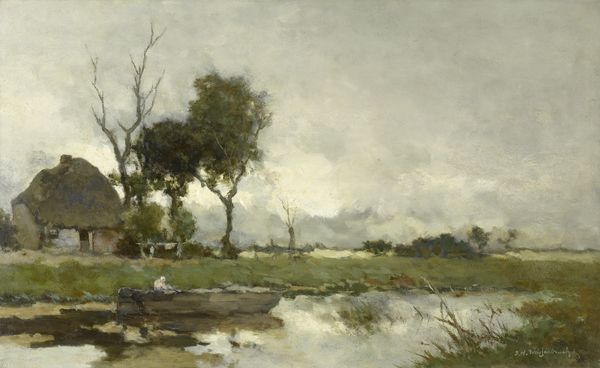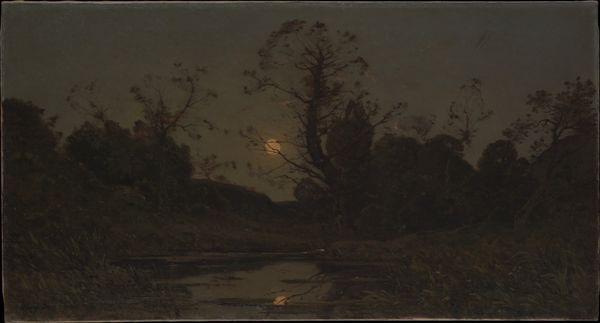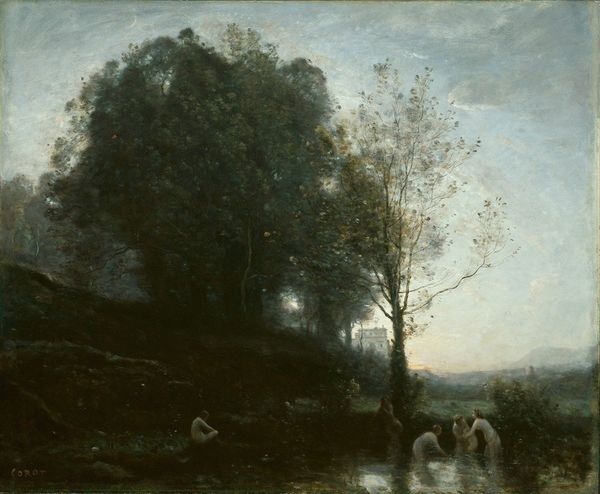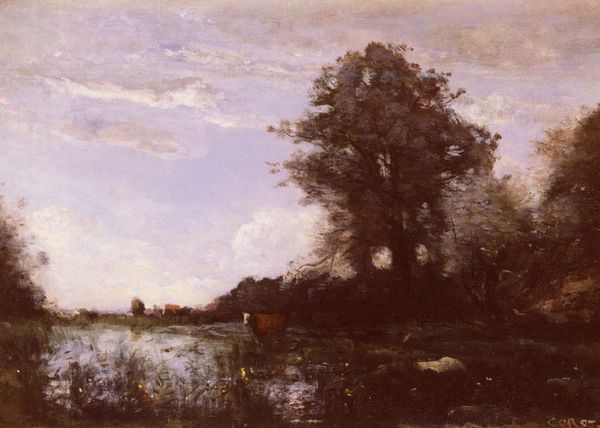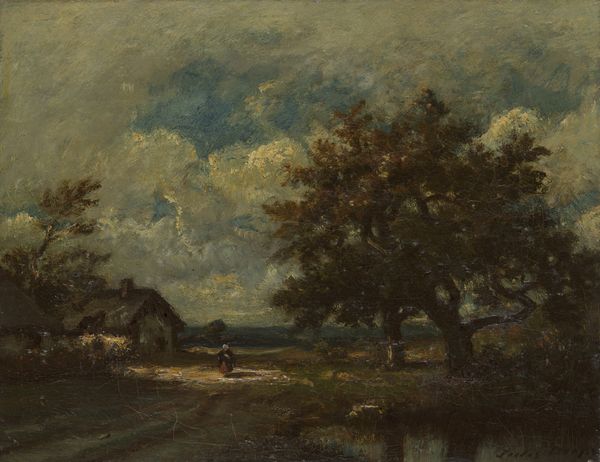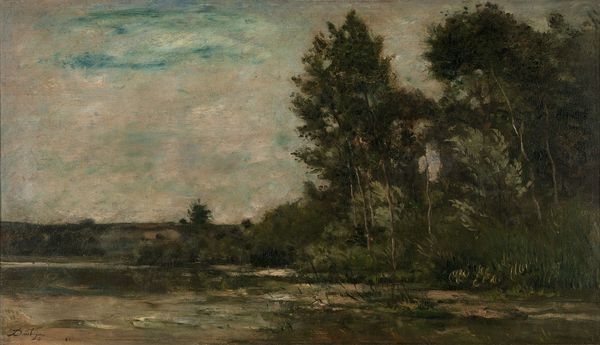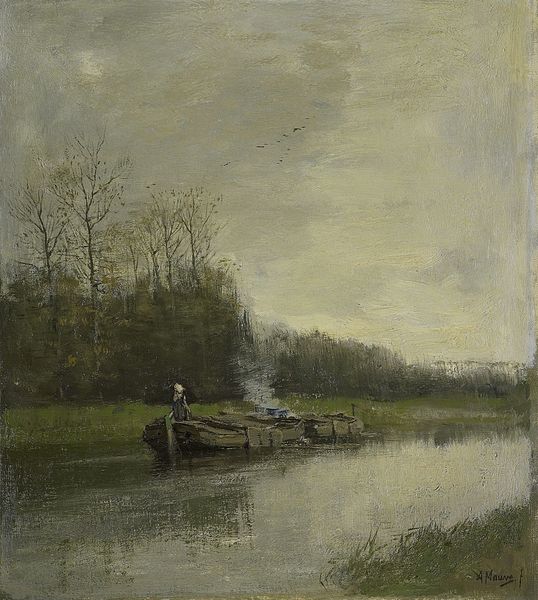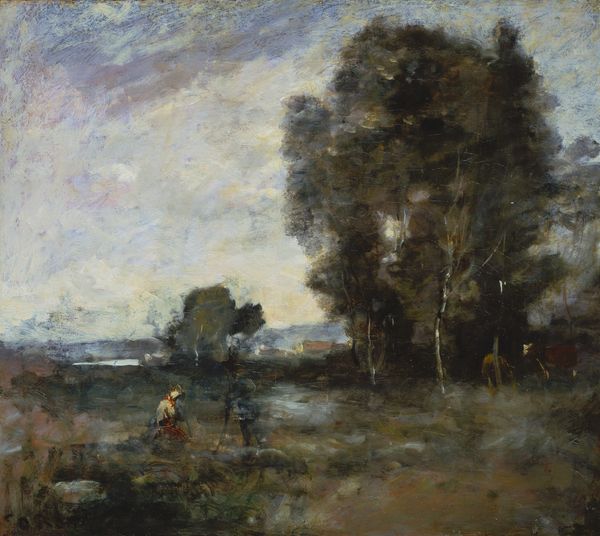
plein-air, oil-paint, impasto
#
impressionism
#
plein-air
#
oil-paint
#
landscape
#
figuration
#
oil painting
#
impasto
#
genre-painting
#
nude
#
modernism
#
male-nude
#
watercolor
#
realism
Copyright: Public domain
Thomas Eakins made this oil on board painting, "Swimming Hole sketch", in the United States, at the end of the 19th century. Eakins was committed to the accurate depiction of the human figure, a radical move at a time when academic art favored idealized forms. Eakins’s interest in realism extended beyond aesthetics; he was deeply engaged with scientific advancements in anatomy and photography, using these tools to inform his art. Here, Eakins challenges the conventions of the art world with his unsentimental, straightforward portrayal of male nudes in a casual, outdoor setting. This was a period of changing attitudes toward the body. Eakins confronted Victorian prudery by celebrating the natural human form and the vitality of outdoor recreation. To fully understand Eakins's vision, one might explore the art criticism of his time, delve into his biography, and examine the records of the Pennsylvania Academy of the Fine Arts, where he taught and faced controversy.
Comments
No comments
Be the first to comment and join the conversation on the ultimate creative platform.
